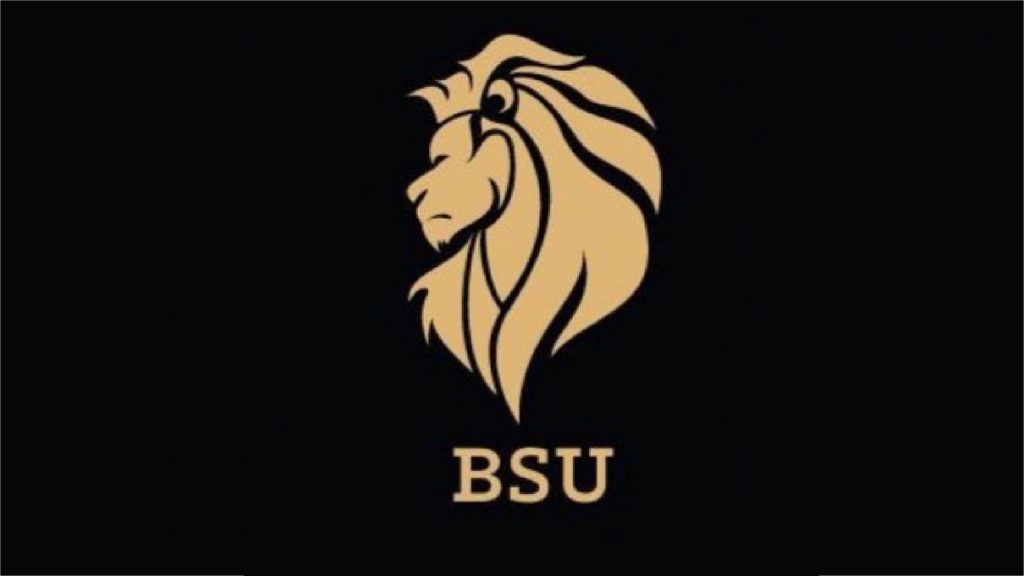BSU demands action by Spring Quarter 2021
“From platitudes and pleasantries to action”: The Black Student Union at UW Tacoma has been waiting for their demands to be answered by Pagano and other university leadership since 2016.
Back in 2015, the Black Student Union at UW Tacoma composed a list of demands to the university to ensure diversity, equality and inclusion on our campus. This document was brought to Chancellor Pagano’s attention in 2016 and since then, stating that there have been no substantial strides taken towards addressing these needs, the Union has revised the document and brought it back to Pagano’s attention.
The Ledger was able to speak with the President of the BSU, LaKymbria Jones, Secretary LaKeisha Morris and Dr. Gillian Marshall, a professor in the School of Social Work & Criminal Justice here at UWT to address these demands, uncover some context, and explore their hopes for the near future.
When asked about the motivation to revise these demands, Jones iterated that the revision was not only necessary due to the shortcoming of the school’s response, but also because of the current climate and prevalence of injustice in our community.
“Of course, after the time of a lot of social injustice, such as George Floyd and Breonna Taylor, we felt it was very necessary to speak our voice currently and revise what we see is best fit for the BSU in today’s time,” said Jones.
The original document consisted of demands surrounding programming, coursework and training that should be required for all faculty and students on the campus. Key suggestions highlighted in the document included propositions for more diversity, equity and inclusion training for all and the expansion of diversity requirements for students.
The document also laid out a call for the inclusion of diversity in coursework as well as an adjustment of hiring practices to seek out candidates that can relate to the Black population.
Per the document in 2015, these steps were established to address the fact that the “Inconsistency and lack of programming that supports Black students is one of the reasons the UW Tacoma struggles to retain them, evidenced by the 58% retention rate of 2008 freshman and 28% retention rate of first-generation Black students the same year.”
Moreover, the original policy presented — which is reiterated in the new document — calls for zero tolerance of the discrimination of and biases against Black students and faculty on campus.
Keeping the same format as the original list, the BSU has added new demands they believe to be necessary for the group.
“We’ve added an emphasis on wanting more art that resembles African American culture made by African American artists that really give us a sense of home on our campus at UWT,” Jones said. “As you see on our campus, [there are] a lot of different artists from different ethnicities and time periods that are very inclusive, so we also want to be included in that inclusivity on campus.”
Not only this, but after attending meetings with the Chancellor, there have been discussions about enabling RSOs to expand and provide more space for RSOs in different library buildings. With these discussions in mind, the BSU has found it necessary to have its own space.
“We wanted something that was very specific for BSU to be able to thrive in,” said Jones. “To have our own space in which we can take full advantage of and kind of not be shadowed or pushed away in a sense in a group that is for all RSOs.”
And lastly, the third new demand they have included takes the form of monetary funding. They are requesting $1,000.00 annually for the next three years to help them get back on their feet to become self-sufficient in funding events, training and development.
When given the chance, BSU opted out of a meeting with Pagano. They’ve met with him in the past about similar issues, and by declining the meeting with the Chancellor and his board, Jones noted that the BSU decided they wanted a written response seeing these needs being met.
“We felt that [the written response] would be more respectful of our time and our efforts for him to provide something in writing that solidifies this is what’s going to be done and have a deadline for that. To pretty much show him that we are truly serious about what we believe in,” Jones said.
If these demands aren’t met by Spring Quarter, Jones mentioned they will need to hold the school accountable.
“Ultimately, if we don’t see any progression in these demands, we will have to hold higher ed. and the Chancellor accountable for basically failing their students,” Jones said. “We presented him with this list of demands that isn’t really new to his desk, it’s been there for about a good five years. Still, if nothing has been done, we can go back and say, ‘Okay, we have been failed with our requests to make this campus more inclusive and more supportive of their black students’.”
Both Jones and Lakeisha Morris echoed sentiments regarding the stonewalling of student voices when facing injustice. Together, they urge students to speak out, or continue to do so, to show solidarity and highlight the strength of power in numbers.
In discussing these experiences at UWT along with the prevalence of anti-Black racism, Morris pointed to the necessity of the campus to better support the Black community at our university and beyond.
Because the university has historically been made aware of these issues on campus and has been provided with this information, Morris set out what she hopes to see now.
“Given that this new list of demands has extra details on just what the school can do as an institution to better itself as, you know, a place that has failed black students again and again. I would hope that, whatever happens, going forward they will actually finally take into account what students, staff and faculty have been telling them over the years,” she said.
Considering this iteration of demands goes into more depth about direct actions that can be taken with succinct guidance and instructions to fight anti-Black racism on campus along with taking into account what faculty, staff and students have told them, Morris noted their priorities have been made transparent.
Dr. Marshall ended the conversation on this note: “I would just like to say that we would like to see some movement from platitudes and pleasantries to action.”
Demands viewable at:
https://www.canva.com/design/DAEYq_iPiEU/1zn3beNzYT8-_AUmnJa1Xw/view?utm_content=DAEYq_iPiEU&utm_campaign=designshare&utm_medium=link&utm_source=sharebutton



